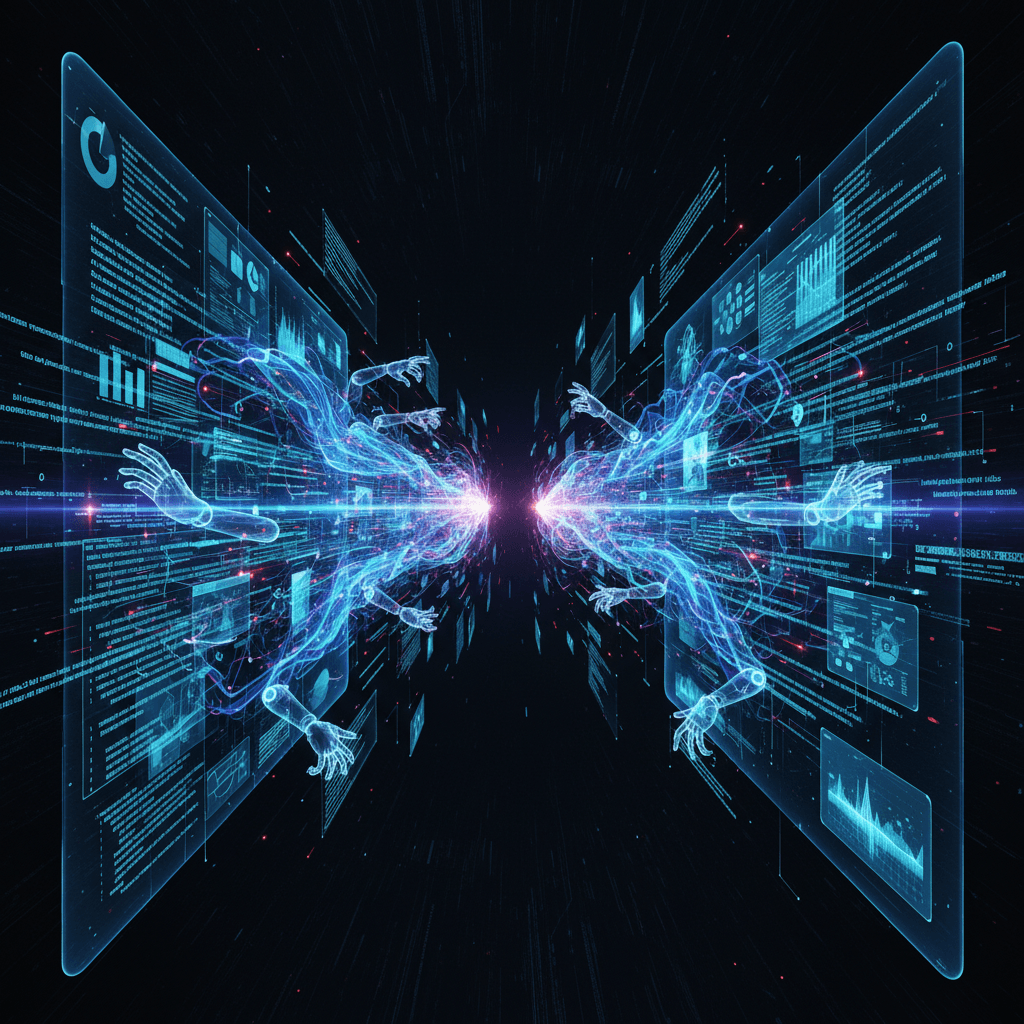Google, Anthropic Drive AI's Evolution with Autonomous Coding Agents
Anthropic and Google's intense rivalry drives AI innovation toward autonomous agents for coding and complex tasks.
November 25, 2025

The artificial intelligence sector is witnessing an intensifying rivalry between its leading developers, with Anthropic and Google at the forefront of a technological race to produce the most capable models. This competition is particularly fierce in the specialized domains of software engineering and complex, multi-step "agentic" tasks, which are seen as the next frontier for generative AI. While the specific "Claude 4.5 Opus" and "Gemini 3 Pro" models mentioned in industry chatter are speculative future iterations, the performance of their current real-world predecessors, Anthropic's Claude 3 family and Google's Gemini 1.5 Pro, already provides a clear picture of this evolving battle. The contest is no longer about simply generating human-like text but about creating AI that can reason, plan, and execute complex workflows with a high degree of autonomy.
Anthropic made significant waves with the release of its Claude 3 model family, particularly its most powerful version, Claude 3 Opus.[1] Upon its debut, the company claimed it outperformed competitors on most common evaluation benchmarks, including those measuring undergraduate-level expert knowledge and graduate-level expert reasoning.[1][2] For tasks relevant to software development, Claude 3 Opus demonstrated strong performance on coding proficiency tests.[3] The Claude 3 models also possess sophisticated vision capabilities, allowing them to process and analyze information from a variety of visual formats like charts, graphs, and technical diagrams, a crucial feature for enterprise customers whose knowledge bases are often encoded in such formats.[1] Anthropic has emphasized that this generation of models shows increased abilities in code generation, nuanced content creation, and analysis.[1]
On the other side of this rivalry is Google, which has leveraged its extensive research and infrastructure to develop the Gemini series of models.[4] The current flagship, Gemini 1.5 Pro, stands out with its exceptionally large context window, capable of processing up to 1 million tokens, which translates to vast amounts of information in a single prompt, such as an hour of video or codebases with over 30,000 lines.[5][6] This massive context window allows Gemini 1.5 Pro to perform highly sophisticated reasoning across large documents and long blocks of code, suggesting modifications and explaining how different parts work.[5] While some direct comparisons suggest Claude 3 Opus holds an edge in certain reasoning benchmarks, Gemini 1.5 Pro is often noted for its speed, multimodal capabilities, and deep integration into the Google ecosystem.[7][8][9] Google is also explicitly developing its Gemini models for robotics and physical tasks, designing them to reason about physical spaces and translate instructions into motor commands.[10][11]
The key battleground where this competition is unfolding is in the realm of coding and agentic AI. Agentic AI represents a significant evolution from passive AI assistants to proactive, goal-driven collaborators.[12][13] These systems are designed to understand high-level objectives, break them down into sub-tasks, interact with their environment, execute actions, and adapt in real time with minimal human intervention.[12] In the context of software development, this moves beyond simple code completion to systems that can understand entire codebases, orchestrate complex workflows like testing and documentation, and proactively identify and suggest solutions to problems.[14][15] This shift promises to dramatically reduce developer context switching and offload repetitive, complex tasks, allowing human engineers to focus on higher-level innovation.[14][15] Both Anthropic and Google are heavily invested in advancing these capabilities, recognizing that leadership in agentic AI will be critical for enterprise adoption, where the automation of complex business processes can unlock significant value.[12]
Ultimately, the competition between Anthropic and Google is pushing the boundaries of what AI can achieve. While hypothetical model names stir excitement, the real substance lies in the tangible advancements seen in current models like Claude 3 Opus and Gemini 1.5 Pro. The focus on sophisticated coding and the development of autonomous AI agents signal a clear trajectory for the industry: a move away from simple generative tools toward creating true AI collaborators.[13] The performance differences between the top models are often nuanced, with each having distinct strengths.[8][9] For developers and businesses, the choice between them will depend on specific needs, whether it's Claude's reported edge in certain complex reasoning tasks or Gemini's massive context processing power and speed.[16][17] As this high-stakes race continues, the primary beneficiary will be the end-users who stand to gain ever more powerful and useful AI tools.
Sources
[2]
[3]
[5]
[6]
[7]
[8]
[9]
[11]
[12]
[14]
[15]
[16]
[17]